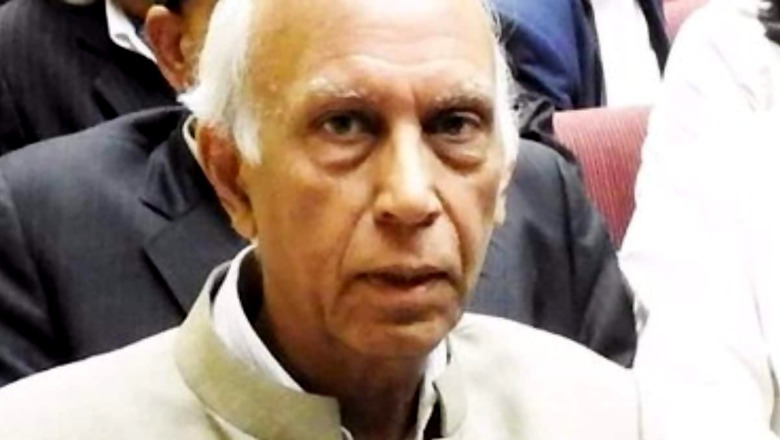
views
Partition was a ‘blunder’ with devastating consequences for social understanding and trust between India and Pakistan, according to Ishtiaq Ahmed, a Swedish political scientist and author of Pakistani descent. In an interview with the Deccan Herald, he expressed a strong belief that the presence of borders in the region is a hindrance and hoped that, similar to the European Union, they ‘may eventually disappear.’
Regarding improving relations between India and Pakistan, Ahmed suggested taking risks and allowing people from both sides to interact more freely. He mentioned that India has shown it can function without relying on Pakistan, and such interactions would greatly benefit Pakistan.
When comparing the socio-economic development of India and Pakistan, Ahmed noted that India is progressing well in various areas. He observed greater freedom for women in India to dress and travel, while in Pakistan, such freedom is limited to the elite. He also mentioned the challenges faced by ordinary women in Pakistan, making it difficult for them to go out alone after 10 pm.
Ahmed highlighted the 1965 war between India and Pakistan as a major mistake that impacted Pakistan’s trajectory. He explained that after partition, Pakistan received significant investments from the USA and the World Bank, leading to progress, as per the Deccan Herald report. However, the 1965 war resulted in a decline in investments, causing long-term economic struggles. He mentioned the shift of the textile industry to Bangladesh and the current financial difficulties faced by Pakistan.
Ahmed also told the publication that to handle the Kashmir issue, Pakistan needs to completely abandon terrorism. He suggests that both countries accepting the Line of Control as an international border could contribute to resolving the issue.
Regarding Wahhabism, Ahmed expressed the belief that it does not have a future, as Saudi Arabia itself is making efforts to end it. He hopes that other countries will follow suit, but also expresses concern that there may be forces working against the Saudi crown prince’s reform efforts.
On the topic of the Uniform Civil Code, Ahmed said he strongly supported it. He said he believed in equality and that everyone should benefit from the same laws.



















Comments
0 comment